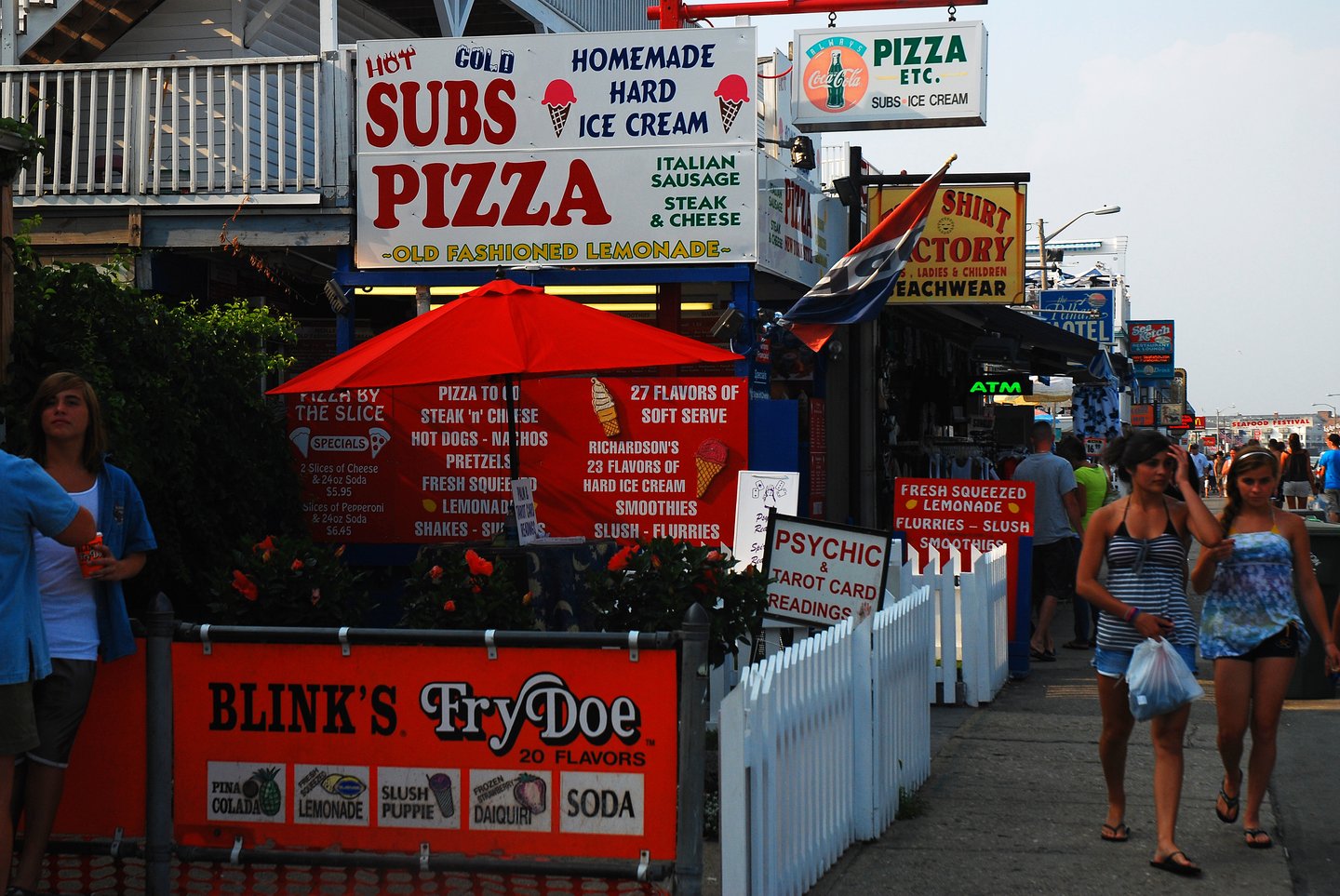Three retailing lessons from the beach boardwalk
Everyone loves a classic beach boardwalk, and even the most landlocked retailers can adopt some practices that help make it a perennial summer attraction.
The summer is in full swing, and if you’re like me your summer plans include plenty of time on the beach (living in coastal New England makes it easier). The highlight of many beach trips is actually visiting the boardwalk, that magical row of stores, restaurants, bars and other assorted businesses catering to tourists which may or may not be located on an actual wooden “board” structure.
Whether the boardwalk is made of actual wooden boards (such as the world-famous Atlantic City boardwalk) or located on a paved surface (as most are these days), it beckons to retailers as well as beachgoers with its unique offerings. Here are three aspects of the boardwalk experience especially of interest to retailers:
Gamification
Any good boardwalk is full of games. Whether it’s skeeball, popping balloons with darts, shooting basketballs or any number of other semi-athletic competitions, the boardwalk provides plenty of opportunities for consumers to test their skills for a chance to win prizes.
And boardwalk visitors eat it up, as evidenced by the lines typically found at these attractions. They love the gamified experience even though most people learn at an early age that the games are mostly rigged (dull darts, too-small basketball hoops) and the prizes tend to be kitschy items that you can buy for far less in a dollar store than you spend racking up turns to earn them.
Even the "good" prizes, like consumer electronics or bicycles, require so many points for redemption that the concessions still make money on them, and the dust that tends to collect on top-shelf goodies demonstrates they serve as eye candy to draw you in rather than as realistic rewards.
Any retailer can benefit by offering shoppers some type of game where they can earn points that can be traded for rewards. Gamification satisfies a natural human urge for competition and keeps customers visiting more frequently and longer. And the prizes don’t even have to be cheap or ephemeral.
[READ MORE: Chipotle adds gamified ‘Extras’ feature to rewards program]
Convenience
Getting to the beach can be difficult. There is often heavy traffic and limited parking. And once you get there, find a parking spot and set down your blanket in the sand, you most likely don’t want to travel a long distance until the sun is setting and you’re preparing for the return trip home.
Boardwalks offer tremendous convenience to beachgoing consumers in several ways. First is proximity. Usually, the boardwalk directly overlooks the beach, meaning customers needing a snack or break from the sun can take a quick jaunt without having to pack up their blanket or belongings.
Prices tend to be a bit higher than off-boardwalk, reflecting a model already in use by convenience retailers. Some retailers, such as 7-Eleven and Dominos, are providing omnichannel competition by directly delivering mobile orders to beach locations.
Second, boardwalks tend to offer a wide variety of amenities all in one general area. A boardwalk often features multiple restaurants of both the sit-down and quick-service variety, convenience/grocery stores, apparel shops, souvenir stands, entertainment venues, and service providers such as laundromats or tattoo parlors.
Even a typical shopping plaza doesn’t offer quite such an eclectic collection of retail tenants. But centers should consider expanding their offerings similar to the boardwalk model, and retailers also should take a creative approach to co-locating different types of partners within their stores.
Localized assortment
Stores on the boardwalk will often feature products that cannot be found anywhere else, such as localized souvenirs, apparel and other merchandise. The fact the often seasonal, independently-operated beachside stores typically don’t have an e-commerce presence also adds a “treasure hunt” experience that can help drive sales for fear of missing out on a item (I was once encouraged not to purchase a discount-priced "Hampton Beach probation vacation" T-shirt and have never seen it anywhere again).
This highly unique product offering can even extend to food, such as the regional delicacy known as "beach pizza" which features a rectangular shape, thin crust and sugary tomato sauce and is only found in a handful of coastal towns in northeast Massachusetts and southeast New Hampshire.
Retailers of all types in all locations can use a localized merchandising strategy for at least some of their assortment, especially with advances in distribution and inventory management systems that make it easy to determine and stock for area-specific preferences, at scale.







